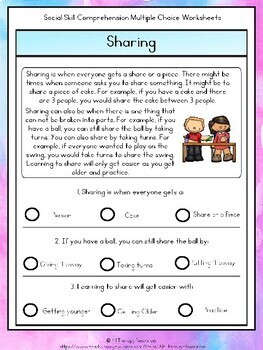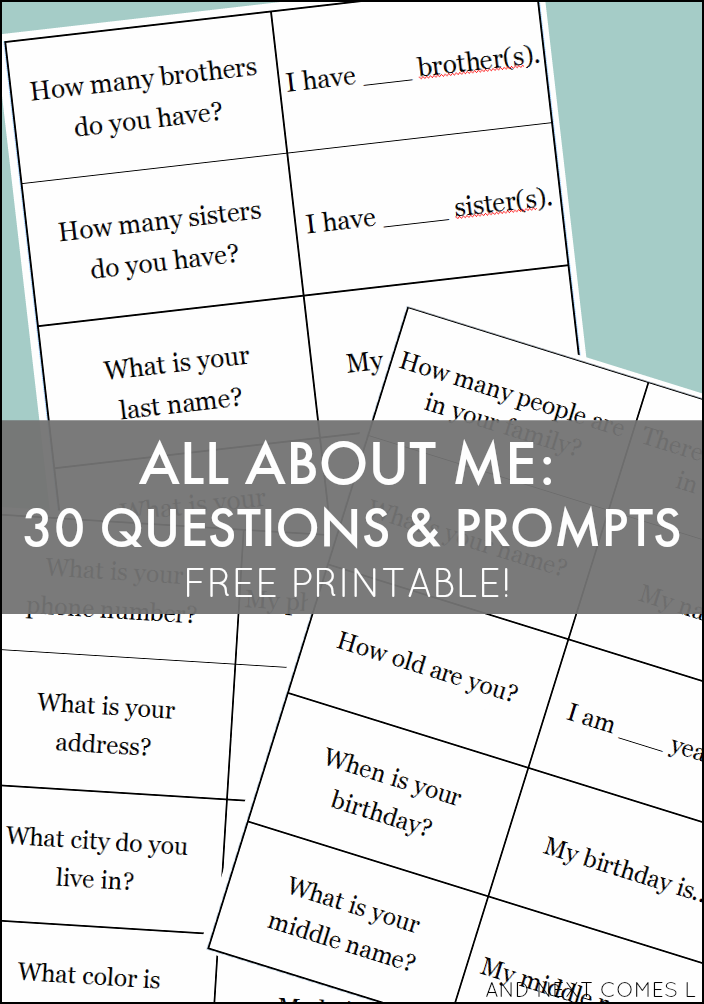

We can then use this information to have a meaningful and engaging conversation with them. Over time, we collect information about others that we can place in our “mind file” about a specific person. When we are conversing with our peers, the best way to keep them engaged is to discuss common or relevant interests. When people are acting in unexpected ways, it causes others to have “weird” or “uncomfortable” thoughts about them. Doing what is expected helps others feel positively about us, or keeps them “thinking good thoughts”. A behavior is considered unexpected when we fail to follow the set of rules in the environment. People are responsible for figuring out what those rules are and for following them. In our society, a range of hidden rules exists in every situation. Big problems call for strong emotional reactions and help from others, where little problems can be worked out if you remain flexible. Consequently, this will help them to better understand the idea that one’s reaction should match the size of the problem. Social Thinking introduces students to a rating scale to help better understand the range of their problem.

Whole body listening is a phrase that is used to describe when someone’s eyes, ears, mouth, hands, feet, bottom, and brain are quiet, still, and focused on the rest of the group. It is important to explain the importance of whole body listening to individuals who struggle with social and communication skills. We notice when someone’s brain or body is not part of the group. “Superflex” can be called on when someone is exhibiting rigid thinking to help encourage that person to see the situation from a different, more flexible, perspective. “The Unthinkables” are a group of comic characters that try to make people inflexible and experience challenges such as getting off topic, getting distracted, and getting stuck on topics. Social Thinking utilizes a group of superheroes to encourage flexible thinking. Many individuals with autism may have the tendency to exhibit rigid thought patterns.
Autism social questions how to#
Through clear instruction and support, Social Thinking helps individuals learn how to read implicit clues about what someone is thinking, what they might do next, and how these clues may differ depending on the context of varying situations.
Autism social questions free#
Educators are free to adapt the curriculum to best suit the needs of the individual learner. It provides the teacher or counselor with a language that makes these topics accessible. The Social Thinking framework breaks down concepts that may otherwise be challenging to explain. Social Thinking helps students improve their ability to take the perspective of the reader to make effective arguments and how to organize information so that it will make sense to the reader. These concepts are also important in writing an essay or reading a book. Additionally, it teaches students when it is appropriate to talk in class versus when they should stay on task and work independently. Students learn the skills necessary to effectively share space with their peers, work well as part of a team or group, and build healthy relationships with others. The concepts that individuals learn through the Social Thinking framework are essential to academic success. This understanding helps us respond in a way that will effect the other person’s thoughts about us in order to ultimately achieve our social goals. We use this information every day to better understand the experience of those around us.

The framework helps these individuals better understand the process by which we interpret the thoughts, beliefs, intentions, emotions, and actions of another person within the context of a situation. Social Thinking is a flexible teaching framework that is designed to help individuals ages four and up with autism spectrum disorder and other social and communication difficulties.


 0 kommentar(er)
0 kommentar(er)
